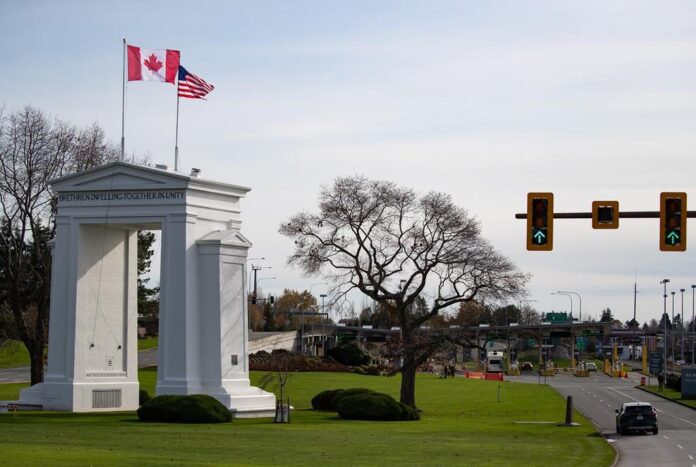Whether you’ve toured the globe or stopped in the United States to fill up the gas tank, when you return to Canada, you must wear a face mask in public for 14 days.
The federal border requirement, however, is now out of step with the rules in B.C. and almost every other province, where masking is no longer legally required in public indoor spaces.
Anyone entering Canada must also keep track of all close contacts for two weeks and closely self-monitor for COVID-19 symptoms, according to Ottawa’s rules.
Dr. Birinder Narang, a family physician in B.C., said it’s important to monitor for symptoms of the virus. Tracking one’s close contacts for two weeks, however, covers an incubation period that is “much longer” than any variant has been in recent months, he explained.
“I think the onus right now is on the federal government, if they say, ‘Hey, we need to have these restrictions,’ there needs to be some transparency around, ‘Here’s the evidence why this continues to work,’” Narang said in an interview.
“I don’t think that evidence exists, in which case it should be a recommendation.”
Trending Stories
Man awarded $450K after surprise office birthday party triggers anxiety
Canada’s spring has been cold so far. Why it may linger for longer
British Columbians show travel patience
The information travellers must follow is on the federal government website but is not part of the email all travellers receive a few days after arriving in Canada.
The requirement for those arriving in Canada to wear a mask for 14 days also does not differentiate between indoor and outdoor spaces.
Narang, who just returned to Canada from abroad, said the federal government should focus on giving people information on how they can protect themselves rather than upholding “antiquated measures.”
“Going the next 14 days does not make a lot of sense. I have just as much likelihood of getting exposed at work this next week, or anywhere else domestically — in a grocery store — despite whether I wear a mask,” he told Global News. “When you look at federal mandates we need to make sure we haven’t lost the plot.”
Fully-vaccinated travellers coming into Canada no longer need to provide proof of a negative COVID-19 test. Anyone entering the country, however, must still fill out travel information on the ArriveCan app, including a detailed quarantine plan.
Narang said the data collected by the ArriveCan app may be useful in planning for future pandemics.
© 2022 Global News, a division of Corus Entertainment Inc.



